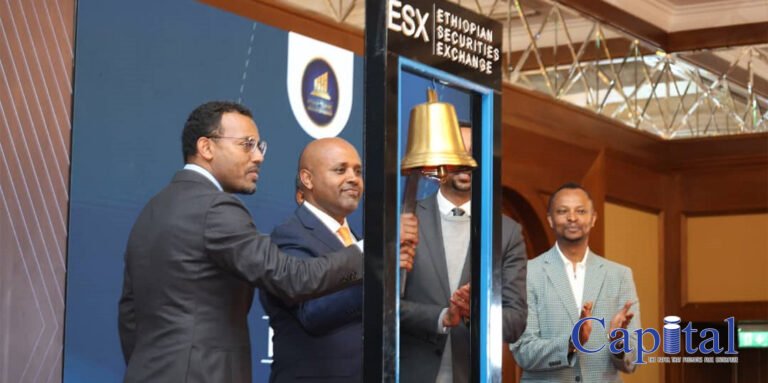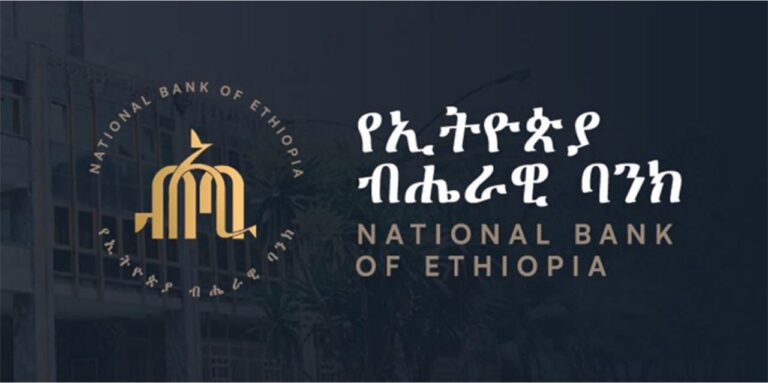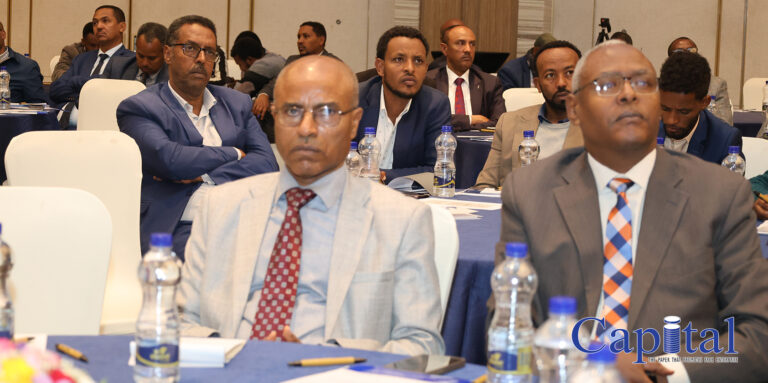The Ethiopia Deposit Insurance Fund (EDIF) has reported a notable increase in premium collections, exceeding projections as financial institutions enhance their deposit mobilization efforts. Following last week’s proposed income tax amendment draft proclamation, which already considers the fund tax-exempt, EDIF is now pursuing additional policy measures, including an exemption from value-added tax (VAT).
Since its launch in April 2023, EDIF has completed its second full fiscal year, collecting over 7.1 billion birr in premiums from 86 financial institutions, including 55 microfinance institutions (MFIs). This represents a 17% increase from the previous year’s 6.1 billion birr in contributions.
EDIF CEO Desalegn Ambaw stated that the fund has mobilized nearly 14 billion birr in its first two years of operation. Moreover, EDIF’s total investments—primarily in treasury bills—reached 15.1 billion birr in the 2024/25 budget year, indicating robust financial growth and stability.
The fund is actively seeking policy enhancements to further strengthen its financial base and ensure long-term sustainability.
Desalegn, the founding CEO and former state minister across multiple ministries, noted that the organization has surpassed its revenue targets.
“The significant growth in deposit mobilization at financial institutions has led to higher premium collections,” he explained, highlighting that increased interest revenue from treasury bills (T-bills) has also significantly contributed to revenue growth.
As part of the macroeconomic reforms introduced a year ago, the government has restructured the treasury bill auction process, offering more attractive interest rates to bidders to stimulate greater investment. Currently, the yield on T-bills has reached approximately 18%, significantly above both the inflation rate and the policy rate.
Solomon Desta, Vice Governor for Financial Institutions Supervision at the National Bank of Ethiopia (NBE), noted that deposit mobilization through banks and MFIs reached 3.25 trillion birr, a 34.3% increase from the 2.5 trillion birr recorded in June 2024.
While he acknowledged that 14 billion birr is a considerable amount, he emphasized the need for continued efforts to mobilize even more funds, particularly to protect depositors, especially small-scale savers in society.
At a workshop held on Thursday, July 10, Solomon pointed out that in developed countries, similar funds mobilize between five to seven percent of total deposits, while in Sub-Saharan Africa, the figure is about three percent. “We have a lot of work to do to reach at least the minimum mobilization level of our peers,” he stated.
He explained to Capital that although total deposit mobilization is significant, the amount raised by EDIF remains important. “Some deposits are tied to the government or related entities, so the funds collected by EDIF do not represent a small portion,” he added.
Merga Wakweya, Operations Directorate Director of EDIF, emphasized that the fund is mobilized for social objectives rather than profit. “Therefore, the revenue generated as premiums should not be considered income,” he clarified.
He informed Capital that EDIF’s leadership has been advocating to relevant government bodies for an exemption of its revenue from profit tax, a practice common in other countries.
Desalegn recalled that this exemption was initially included in EDIF’s formation proposal but was later removed when the establishment law was enacted.
The Operations Director stated that the draft amendment to the income tax proclamation, tabled in parliament a week ago, includes a provision exempting the EDIF premium from income tax deductions.
“After tireless efforts to lobby the relevant government bodies, we succeeded in securing this exemption, and we hope lawmakers will approve the amendment,” Merga concluded.
He stated that VAT is another issue for which the Fund is seeking similar relief. “So far, we have not been required to pay VAT, but there are concerns that tax authorities may demand it in the future,” he explained.
The VAT proclamation, amended about a year ago, is a separate tax law. The Fund is now advocating for an additional provision that would exempt it from VAT obligations.
According to its leadership, the Fund’s primary objective is to protect smallholder depositors, currently up to 100,000 birr. “In principle, we believe this amount should be periodically revised to align with international best practices,” they noted.
Established in March 2023, the Ethiopian Deposit Insurance Fund (EDIF) aims to safeguard the stability, security, and soundness of the nation’s financial system, protecting 97% of depositors at financial institutions with assets below 100,000 birr.
The CEO reported that the state-owned Commercial Bank of Ethiopia contributed 49 percent of the fund, while private banks supplied the remaining amount, with microfinance institutions holding a minor share.
Under Article 19 of EDIF’s Establishment and Operation Regulation No. 482/2021, the Fund is authorized to invest its resources in government securities, government-guaranteed securities, or any other approved investment mode.
Desalegn explained that the Fund has thus far focused on Treasury bills (T-bills) and interest-free compliant businesses, as approved by its board. “If the board, chaired by Solomon, the Vice Governor of NBE, gives the green light, we will also participate in other bonds set to be introduced soon through the Ethiopian Securities Exchange (ESX),” he said.
He informed Capital that ESX had approached the Fund to play a key role in the exchange platform, adding, “We will consider the proposal.”
Currently, the Fund applies a flat-rate deduction of 0.3 percent on total deposits from all financial institutions. However, the leadership stated during a workshop that it plans to transition to a risk-based deduction model in the future, which is common among similar institutions.
Solomon told Capital that the establishment of the Ethiopian Deposit Insurance Fund not only boosts depositor confidence but also attracts investors interested in the country’s financial sector.
“Foreign investors considering Ethiopia assess the country’s risk profile. They also evaluate whether prudent financial infrastructure, such as a financial safety net—including a lender of last resort and deposit insurance like EDIF—is in place,” he explained. “Now, we have a system that will strengthen their confidence, as we have the necessary infrastructure to manage financial risks.”
Ethiopia has currently opened its financial sector to international investors.





